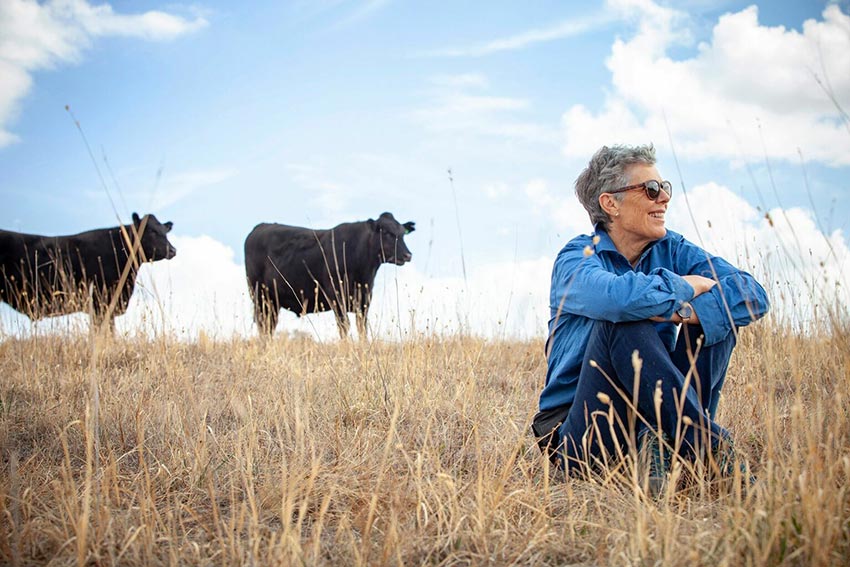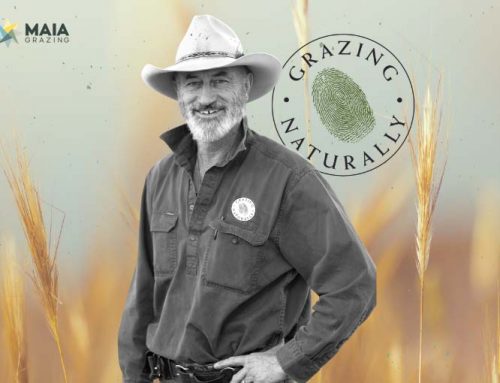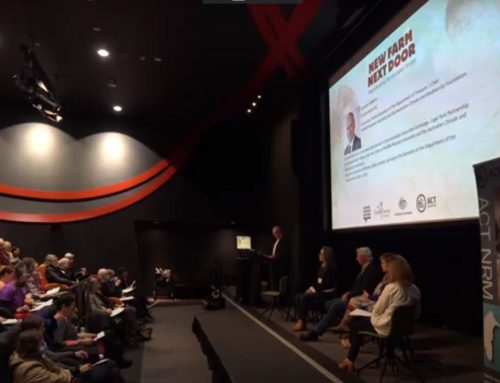Soils for Life’s long-running case study program is now focusing on groups of farmers. We recognise that rebuilding our agricultural soils and landscapes is driven from the ground up, and starts with farmers; particularly with groups of farmers. This highlights the importance of sharing experiences and ideas and supporting each other to step out of the safety of the known and try out new ideas and approaches.
Regenerative farmer Gill Sanbrook is part of the 8 families group in the Gundagai/Holbrook area, which has provided her and the other families involved with much needed support and comradeship as they navigate their journey towards regenerating their soils and landscapes.
“It can be very isolating being a regenerative farmer because it is a big shift in culture as well as practice,” she says. “At the pub, it is hard to stand at the bar and talk about what you are doing. Because you are no longer focused on how many tonnes of super you are putting on your paddocks, or whether you are maximising yield – you don’t fit with the cultural conversations anymore.”
“Because there is no prescription for regenerative farming – you can’t call up your agronomist to tell you what to put on your paddock — your decisions have to ebb and flow between the conditions at the time, your ideas and your holistic context.”
The 8 families group formed more than a decade ago after an holistic management course. Since then, the group has evolved and experienced transitions in all the businesses and families. Social scientists would call this kind of group a community of practice.
Gill Sanbrook
- A shared area of interest and/or competence.
- A sense of community, where members of the group engage in joint activities and discussions, and share information and learnings, and often support each other through challenges.
- A shared practice, including experiences, stories, tools, and ways of addressing recurrent problems that they have discussed, developed or implemented together.
Most producers are familiar with this idea, though often under different names. Landcare groups, peer-mentoring groups, holistic management groups are all examples of communities of practice.
Gill reflected that, in regenerative farming, you have to rely on your own knowledge, insights and observations so much more, and having the group means we have other people to share experiences, ideas and insights with. “As the group developed, there was a growth in the comradeship, trust and people’s willingness to share. It is not a counselling session, but a place where you can really be heard.”
“We share techniques and approaches, do farm tours, and take a critical approach to discussing each other’s ideas and challenges to ensure we give constructive and supportive feedback,” Gill says.
In a farming business, there is no boundary between the business and life. “While we generally talk about farming, anything can come up,” Gill says. “People go through different situations and the group is just there, quietly, in the background providing a tower of strength.”

Gill at an 8 families workshop
Meetings are usually accompanied by a morning tea of home baked cakes. And the annual Christmas party is time to have fun and just spend time together.
One of the greatest benefits of communities of practice is the increased capacity to learn. We often assume that learning happens in classrooms or workshops, and knowledge is poured into our heads like water from a jug into a glass. In reality, most of our learning happens as a result of our practical experience (trying things ourselves) and from social interactions, especially sharing knowledge with others in groups. The 8 families are a living demonstration of this.
Together, the 8 families have explored new ideas and trialed them on the farms. They meet every six weeks, each time on a different farm, and usually do a farm tour and discuss what is happening on the farm. Together, they have a huge amount of collective knowledge. “Our group brings a wealth of experience from different perspectives including non-farming businesses, which we share with each other,” Gill says.
Gill also highlighted the importance of fostering new groups, which she does with Brian Wehlberg from Inside Outside Management. “I have supported the set up four new groups now, and I am happy to step up and enjoy the process,” she says. “A one-pager of tips for building a successful support group was shared at the recent Farming Matters Conference in Albury.”
Building a successful Support Group
Soils for Life will be documenting the stories of a number of communities of practice around the country over the next three years, and looking for opportunities to help new groups get established and succeed. Please get in touch with us via info@soilsforlife.org.au if you are:
- Part of a peer-to-peer group of farmers who are regenerating your soils and landscapes and interested in sharing your story;
- Part of a group that wants to become more active in soil and landscape regeneration;
- Interested in connecting with farmers in your region and potentially setting up or joining a group.



